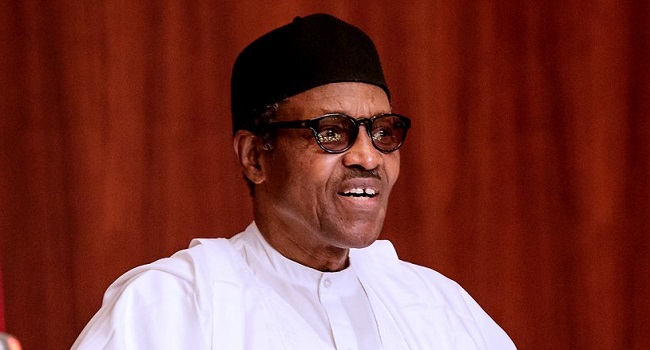News
Buhari reveals why he refused to hand over to Osinbajo during April trip

President Muhammadu Buhari has explained the reason he refused to hand over power to Vice President Yemi Osinbajo during his trip in April to the United Kingdom (UK).
Buhari was in the UK from April 25 to May 5, 2019 on a private visit and did not hand over to his vice during the period.
He explained that he did so because constitutionally, he would only hand over to the vice when on leave or would be out of the country for more than 21 days.
He made this known in a six-paragraph counter-affidavit deposed to on his behalf by one Mr Friday Atu, a litigation officer in the Civil Litigation Department of the Federal Ministry of Justice.
This followed a suit filed against Buhari and the Attorney-General of the Federation by a Lagos-based lawyer, Inibehe Effiong.
Effiong in a case, with suit number FHC/L/CS/763/2019 and filed before a Federal High Court in Lagos, questioned Buhari’s failure to hand over power to Osinbajo during his trip to the UK in April.
He had prayed the court to determine whether in view of the extant provisions of Section 145 (1) of the Constitution of the Federal Republic of Nigeria, 1999 (as amended), Buhari can validly proceed on vacation for any length of time without transmitting a written declaration to the National Assembly to that effect, which will empower the vice president to perform the functions of the president in an acting capacity.
He had also asked the court to determine whether Buhari’s action in proceeding on vacation to the UK from April 25, 2019, to May 5, 2019 without transmitting the written declaration envisaged in Section 145 (1) of the constitution to National Assembly is not in conflict with the provisions of Section 145 (1) of the constitution.
But responding in the counter-affidavit through Atu, Buhari said, “It is a fact that the 1999 Constitution (as amended) regulates the performance of the duties of the President of the Federal Republic of Nigeria in situations where the President is proceeding on vacation or is otherwise unable to discharge the functions of the office.
“That it is a fact that where the President embarks on a vacation or otherwise is unable to discharge the functions of his office and fails to transmit a written declaration to that effect, he will be considered not to have complied with the constitution (as amended).
“That the time within which the President has to transmit a written letter to the President of the Senate and the Speaker of the House of Representatives of the Federal Republic of Nigeria is 21 days.
READ ALSO: Buhari sacks tribunal chairman
“That the President’s foreign trip lasted for nine days from April 25, 2019, to May 5, 2019. The President did not exceed the 21-day period required by the constitution. It is in the interest of justice to dismiss the claims of the plaintiff.”
In a preliminary objection, Buhari urged the court to strike out the suit on the argument that the lawyer lacked the locus standi to institute the case.
The matter, fixed for Monday, October 7, 2019 for hearing, is before Justice A. O. Faji of the Federal High Court in Ikoyi, Lagos.
Join the conversation
Support Ripples Nigeria, hold up solutions journalism
Balanced, fearless journalism driven by data comes at huge financial costs.
As a media platform, we hold leadership accountable and will not trade the right to press freedom and free speech for a piece of cake.
If you like what we do, and are ready to uphold solutions journalism, kindly donate to the Ripples Nigeria cause.
Your support would help to ensure that citizens and institutions continue to have free access to credible and reliable information for societal development.




















